“It’s been around one year since we first started developing an empty, contaminated ex-landfill site into a Centre for Sustainable Food Systems Education, and what a journey it’s been!”
– Audrey Beard, Melbourne Food Hub’s Urban Agriculture Facilitator. The Urban Farm has come to life, highlighting what can be achieved with the help of the broader community to re-shape our urban spaces, repurposing unused land into a resource for everybody’s benefit. A place to learn farming and gardening skills, meet your neighbours, grow food, and most importantly share this food, knowledge and friendship. In light of the recent COVID-19 pandemic and ongoing climate crisis, we feel extraordinarily lucky to have a community of local food supporters working with us to change our often problematic relationship to food (more details on these incredible contributors below). It has always been the Melbourne Food Hub’s aim to create a replicable model, inspiring other communities to create their own food hubs and strengthen resilience across the board, and this is important now more than ever. Our Urban Agriculture Facilitator, Audrey Beard outlines our journey on the Urban Farm below. We first started with building the frames for 12 raised beds, with the help of VCAL students from the Reservoir High School. We turned these into wicking beds with the help of Jeremy from Very Edible Gardens who facilitated a workshop teaching participants how to install wicking beds from start to finish. Once these beds were growing along nicely, we started adding more beds along the fence-line and planted berries, rhubarb, asparagus and other perennials.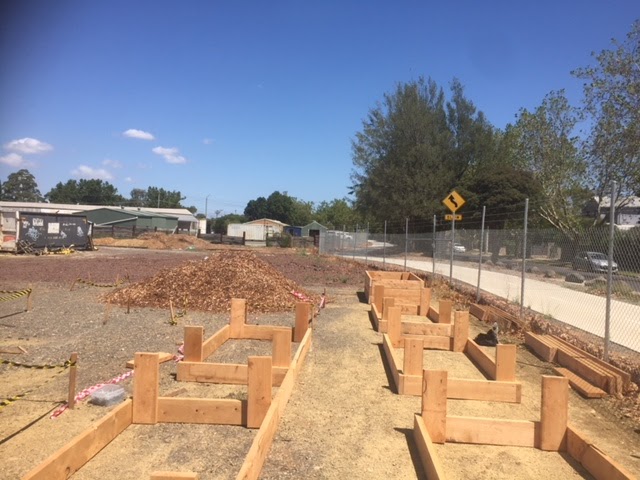
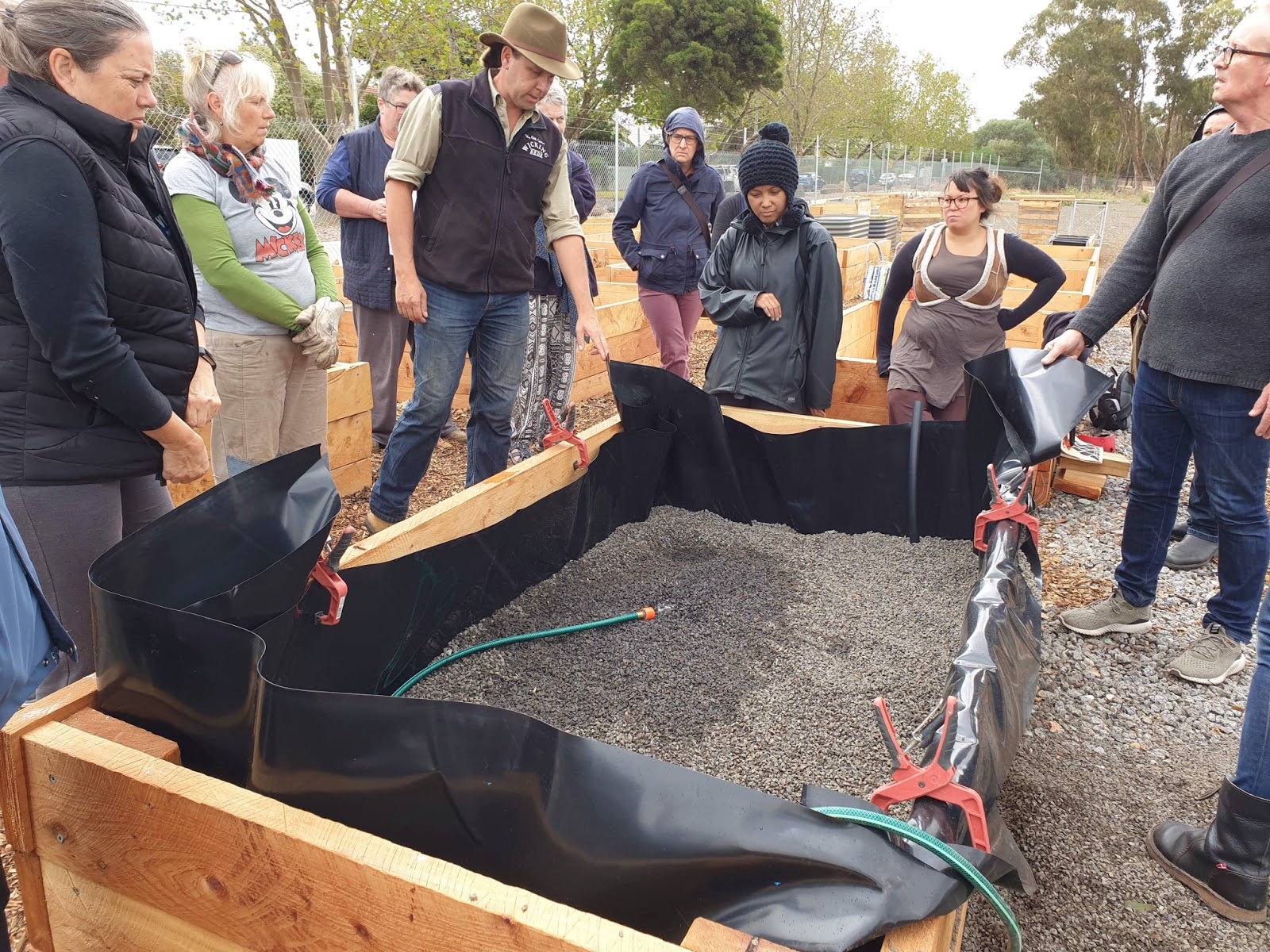
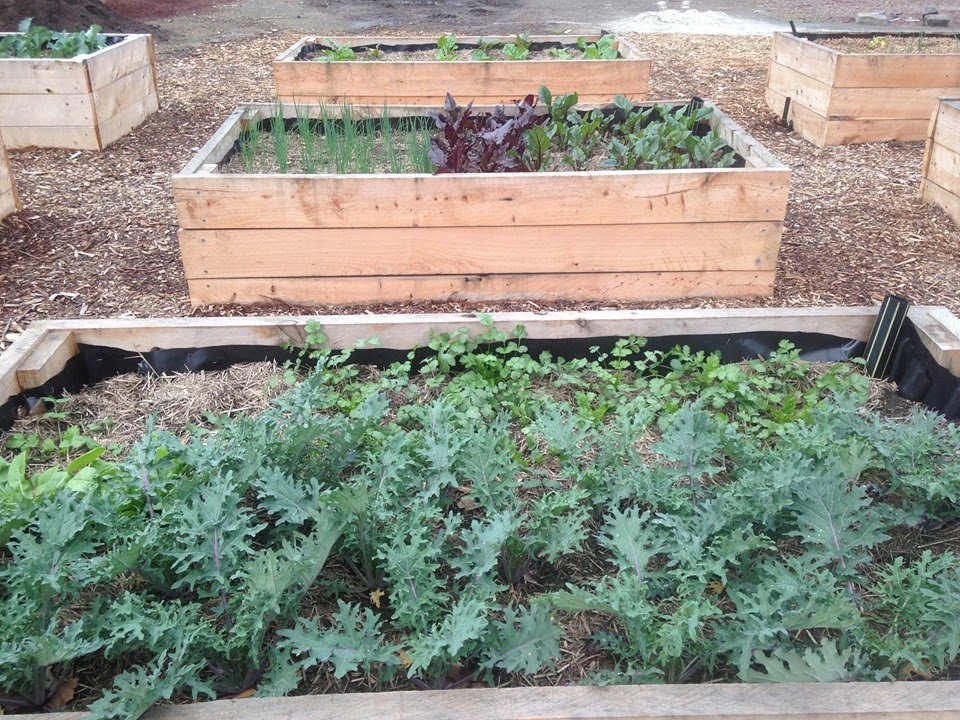
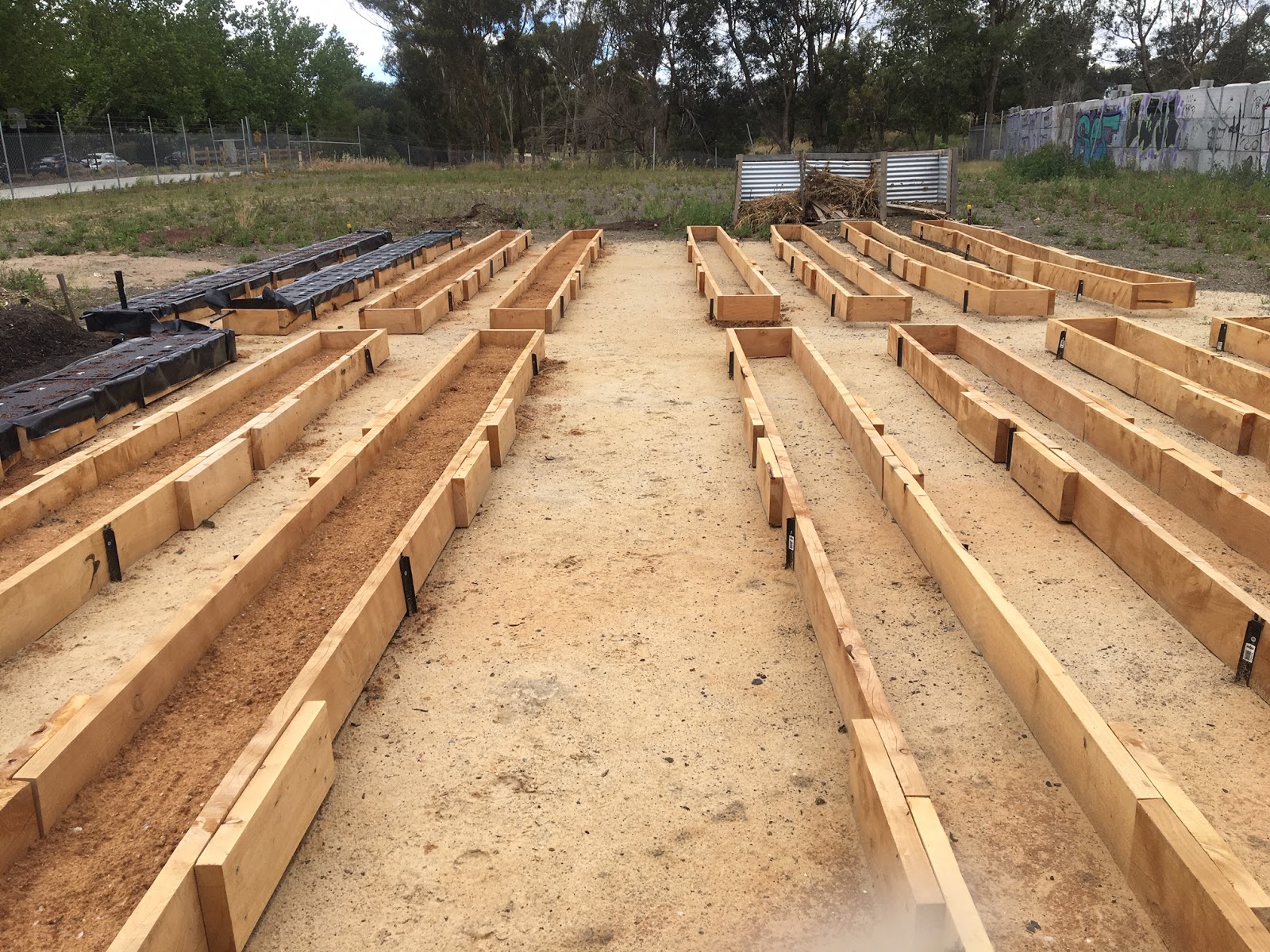
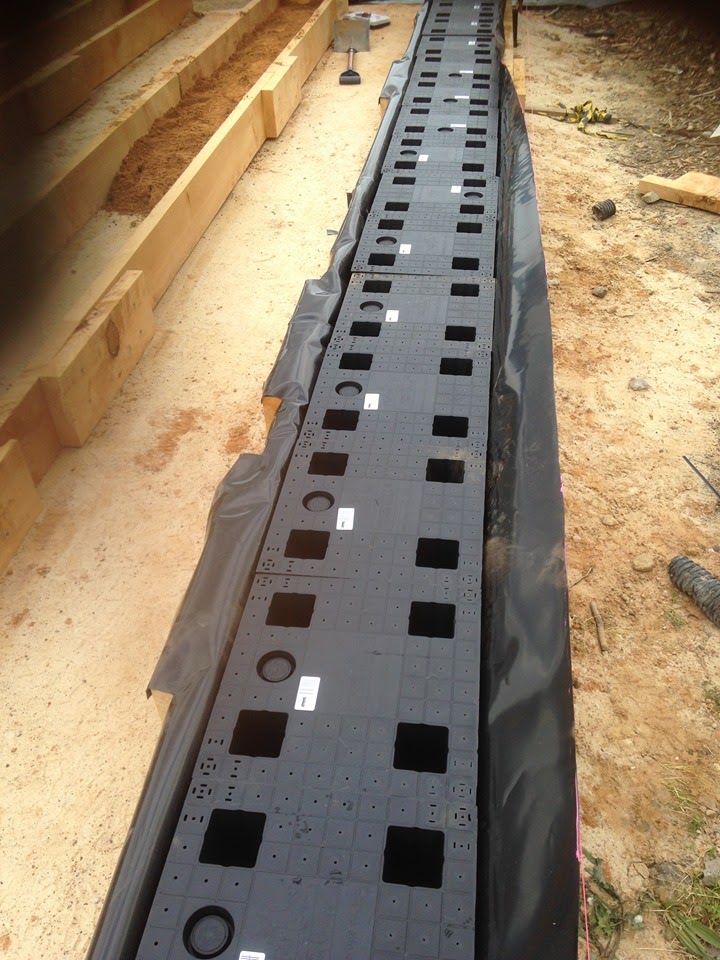
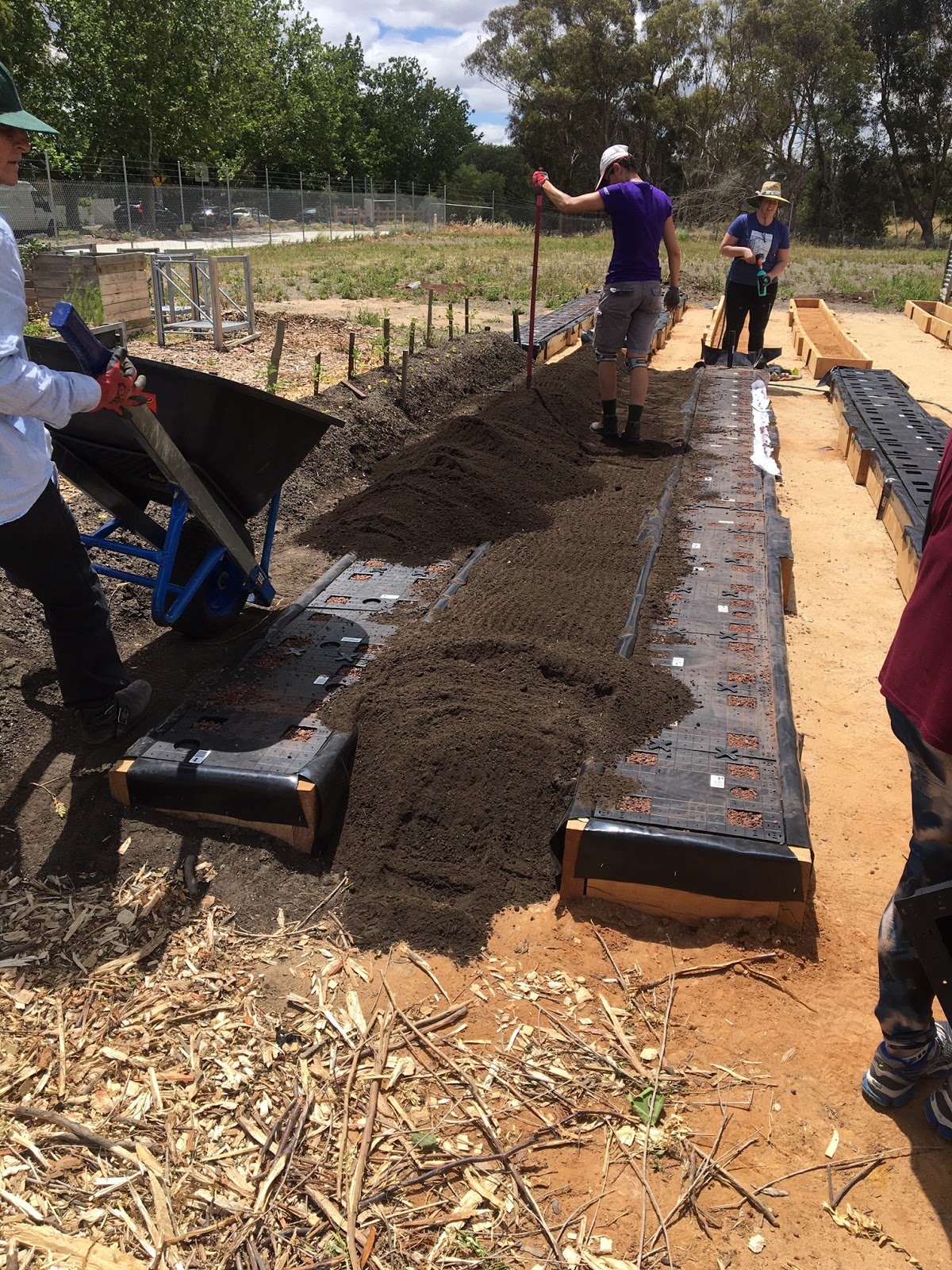
The cells have little columns which are filled with perlite, with a inlet pipe to fill with water and an outlet pipe to let excess water escape to avoid waterlogging. We then mounded a mix of well-draining soil and compost on top, and were ready to plant!
We’ve been planting consecutively as each row has been completed, and have been harvesting produce each week to add to our weekly ‘Grow/Source/Eat’ Veggie Parcels which also feature produce from other small and medium sized, local producers. So far this Summer we’ve been harvesting tomatoes, zucchinis, cucumbers, spring onions, beetroots, lettuce, silverbeet, kale and basil, with our Autumn planting about to begin!
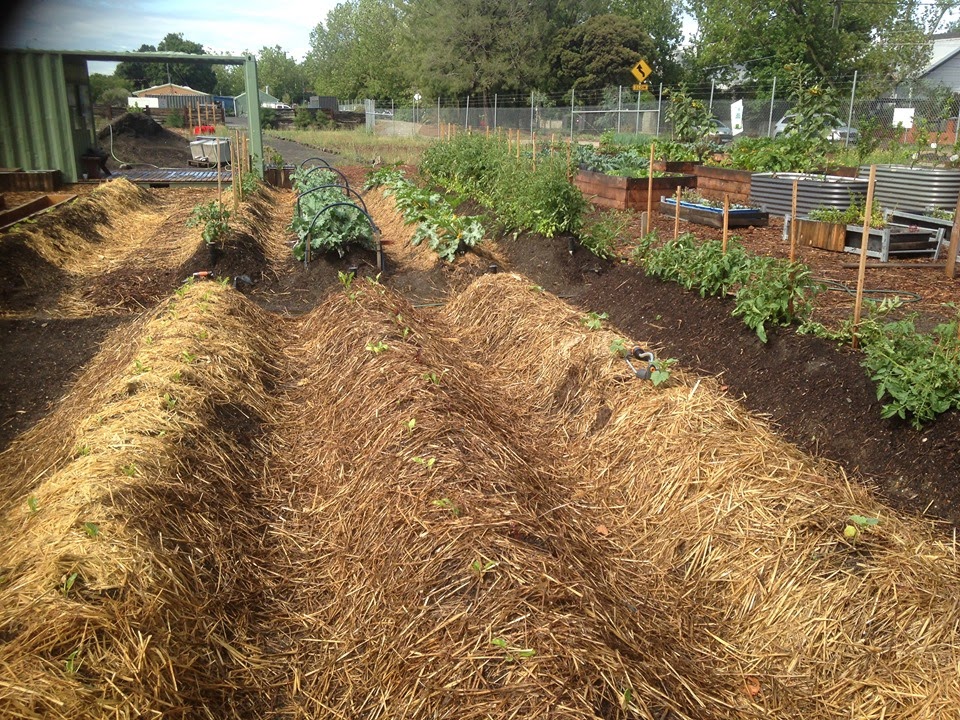
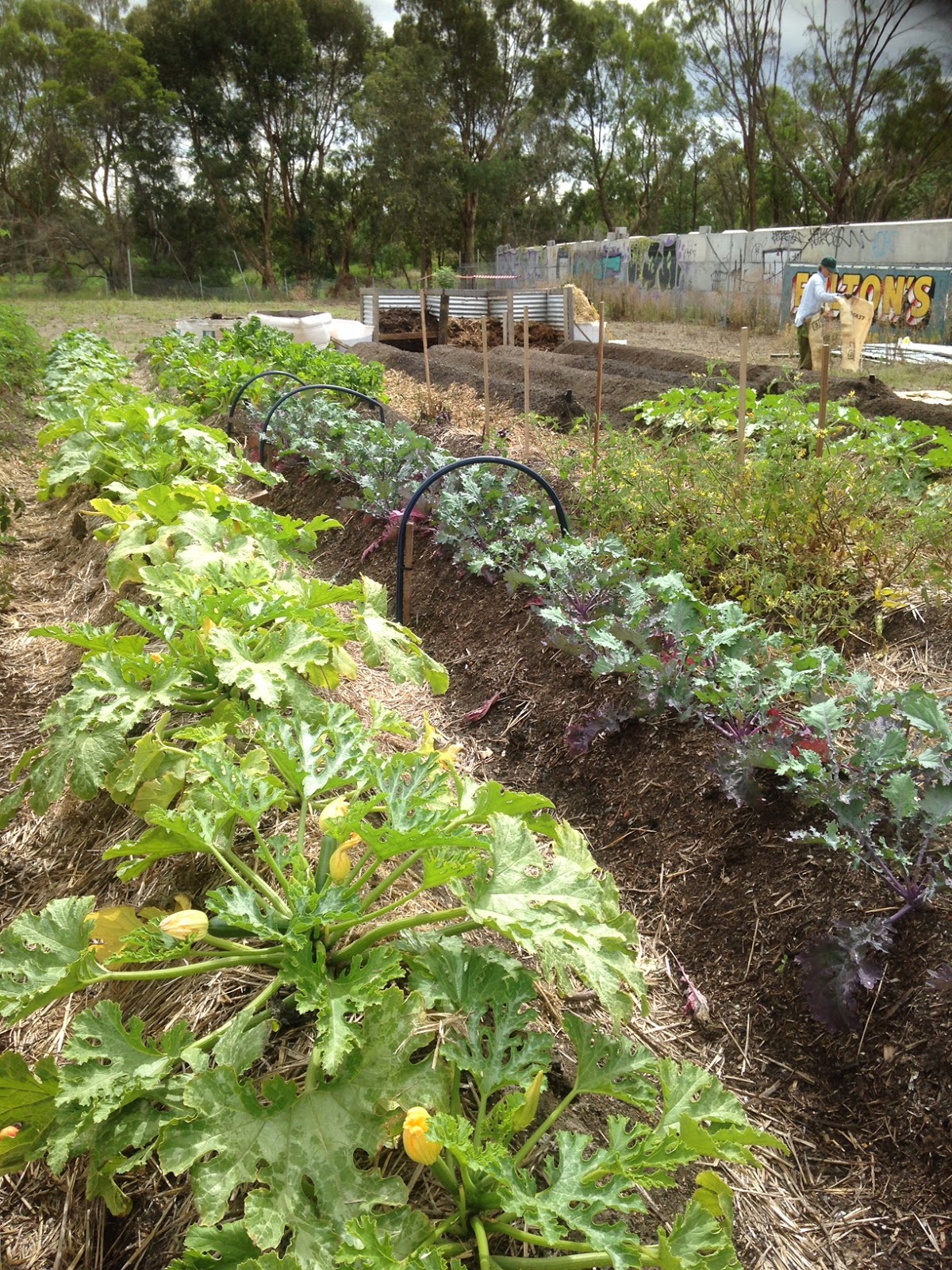
We’d like to thank our amazing team of volunteers who’ve come each week, the students of Reservoir High School and Melbourne Polytechnic for all their hard work and to all of our customers who have supported us to grow fresh, sustainable food by signing up to our veggie boxes. We couldn’t do it without you!
If you’re interested in working with us to create a strong, resilient and supportive local food community we’d love your help – just do one or more of the following:
1.) Spread the word about us to a friend.
2.) Start sourcing your produce from a sustainable, local producer – our Grow Source Eat fruit and veggie parcels are available here.
3.) Stay tuned for our upcoming ‘Cultivating Resilience’ guides to growing at home.
4.) Register your interest as a volunteer or get in touch about what special skill you have that we could use (volunteering is currently on hold, but we’ll need more help than ever in the post-COVID-19 world!)
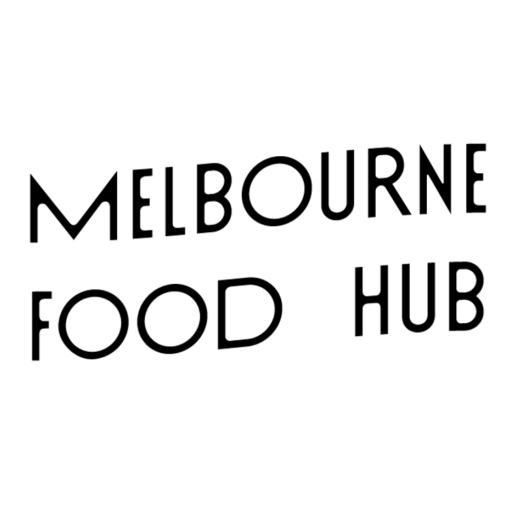
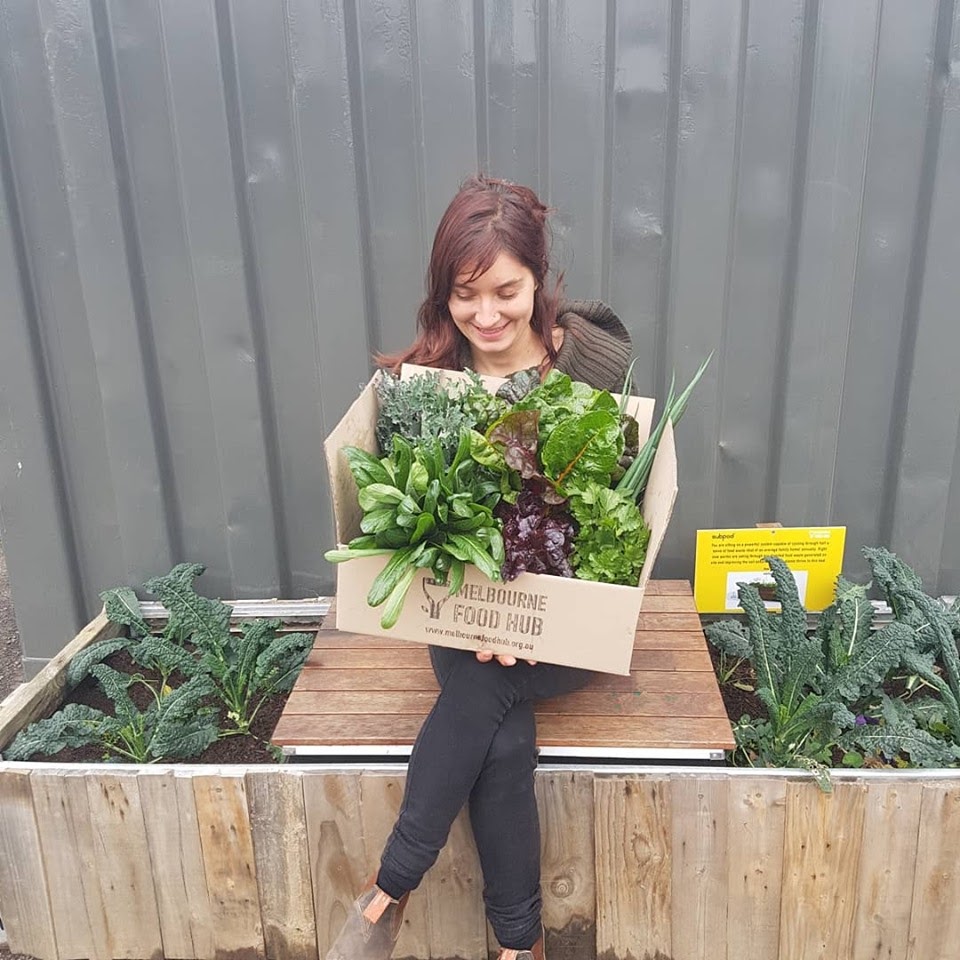
Recent Comments